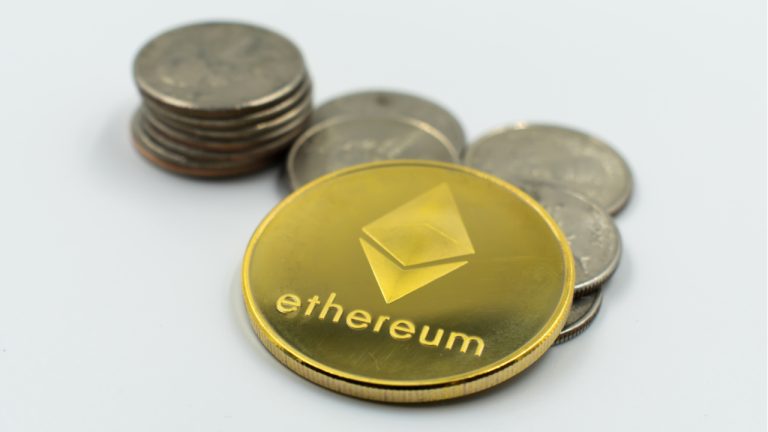
The Hinman documents have been available to Ripple for over two years, and their public release has been eagerly awaited by many, but some were disappointed by the lack of any real bombshells.
The Hinman documents were finally unsealed and made publicly available on June 12 after a lengthy back and forth between Ripple and the United States Securities and Exchange Commission (SEC), but what exactly do they reveal?
The documents are extensive, and while they can be found in public resources like the Public Access to Court Electronic Records (PACER) or CourtListener, lawyer James Filan tweeted on June 13, compiling them into two URLs.
#XRPCommunity #SECGov v. #Ripple #XRP Here are the Hinman documents, by Exhibit number, in one place. https://t.co/6kUYZ1X2WKhttps://t.co/wZQmalfFkS
— James K. Filan (@FilanLaw) June 13, 2023
Speaking to Cointelegraph soon after the unsealing, pro-XRP lawyer and founder of CryptoLaw John Deaton shared his belief that “the documents themselves don’t impact the judge’s underlying analysis of whether XRP (XRP) was offered/sold by Ripple as an investment contract, or XRP’s status in the secondary markets in the United States.“
This is considered a key defense of Ripple during its legal battle with the SEC. But those keeping a close eye on the case will know that the documents were not expected to do so, despite the then SEC chair Jay Clayton referencing the speech as “the approach we take to evaluate whether a digital asset is a security,” the 2018 speech carried disclaimers that it was the personal views of the then director of corporation finance William Hinman, which “does not necessarily reflect those of the Commission.”
With the Hinman documents being such a hot topic, many other crypto lawyers have also wondered what the documents might mean for XRP and Ether (ETH).
A “nothingburger?”
After the documents were unsealed, many onlookers, such as Gabriel Shapiro, general counsel for crypto firm Delphi Labs, took to Twitter calling them a “nothingburger,” which had no impact on the case between Ripple and the SEC.
Hinman emails are a nothingburger though great for ETH. No idea why Ripple thinks these emails help Ripple's case....
— _gabrielShapir0 (@lex_node) June 13, 2023
Pro-XRP lawyer and Hodl Law founder Fred Rispoli had a different take when appearing on the Thinking Crypto podcast on June 15. He suggests they are “explosive” because although “we all knew there’s a revolving door” between regulators and private firms — and “behind the scenes dealings” — the public rarely gets a chance to see it as clearly as it’s displayed in the emails.
In other words, while the documents might not help Ripple regarding an XRP security determination, it does impact the SEC’s credibility. It sheds further light on why Hinman gave the speech despite protests from other SEC divisions.
The documents also highlight what appears to be an acknowledgment from Laura Jarsulic — an attorney with the SEC’s Office of General Counsel — that tokens on a sufficiently decentralized network might exist in a “regulatory gap” where the tokens are “not a security because there’s no ‘controlling’ group,” but “there may be a need for regulation to protect purchasers” as occurs with credit cards and medication.

This might be significant, as current SEC chair Gary Gensler has repeatedly said that he believes all cryptocurrencies except for Bitcoin (BTC) are securities and that rules for crypto already exist.
A boost to Ripple’s fair notice defense
Ripple’s fair notice defense refers to the argument that the SEC had not provided it with sufficient notice before suing it for committing securities fraud in December 2020.
However, the defense is generally not perceived to be strong, as longstanding court precedent — i.e., the Howey test that determines whether a transaction qualifies as an investment contract or security — is regarded as fair notice.
The FAIR NOTICE DEFENSE is not what a lot of people think it is. I see a lot of comments about how @Ripple’s FND is a slam dunk and Ripple and #XRP will win. Make no mistake about it, Ripple hopes the judge never decides the FND. #XRPHolders would prefer no decision on the FND.
— John E Deaton (@JohnEDeaton1) July 2, 2022
But in the interview with Cointelegraph, Deaton suggested that the documents support Ripple’s argument that the speech sowed market confusion and hindered the ability of market participants to determine exactly what constitutes a security under the Howey test, saying:
“The documents do assist Ripple (and others) in arguing that the speech caused greater confusion in the markets, causing market participants to lack adequate notice of what was prohibited by existing law.”
The SEC’s credibility
The Hinman documents show the conversations between various SEC members as they sought to get the speech ready for public release.
As pointed out by Ripple’s chief legal officer Stuart Alderoty in a Twitter thread on June 13, the emails also highlight that Hinman had received feedback from other divisions of the SEC, noting that some of the factors he used when determining that Ether was not a security had no legal basis.
3/A refresher: Hinman, as Head of the SEC’s Corp Fin, gave a speech in June 2018 declaring that a token is not a security once it becomes “sufficiently decentralized” and he invented factors to consider when making a “sufficiently decentralized” determination.
— Stuart Alderoty (@s_alderoty) June 13, 2023
Deaton’s CryptoLaw hosted a panel on June 14, joined by fellow crypto lawyer Jeremy Hogan and former SEC securities lawyer Marc Fagel, who worked at the agency for 16 years.
The Hinman Docs: All-star Legal Panel https://t.co/5I6xAI5H0B
— CryptoLaw (@CryptoLawUS) June 14, 2023
During the panel, Fagel agreed that the email contained no real bombshells relevant to the case, but did highlight some potential conflicts of interest. He said on multiple occasions that he did not want to ascribe motivations to Hinman but added:
“I do try to see both sides of it. So I don’t like to leap to there’s something unethical here, although we can all agree that there’s some conflicted issues here and some really disappointing conduct here.”
Before and after working with the SEC, Hinman worked at a law firm called Simpson Thacher & Bartlett, which was a member of the advocacy organization Enterprise Ethereum Alliance that seeks to drive the use of Ethereum blockchain technology.
According to the watchdog group Empower Oversight Whistleblowers and Research, the group that initially filed the freedom of information request that led to the Hinman documents, Hinman “continued to receive millions of dollars from Simpson Thacher while working at the SEC.”
The implication, as expanded upon by Hogan during the panel, is that Hinman was essentially being paid off to give Ether a free pass and say in his speech that Ether was not a security, which some people have previously referred to as “ETHGate.“
Related: Ripple’s Alderoty calls for probe into Bill Hinman and his infamous speech
Hogan had a similar take, suggesting that the emails did not contain much that Ripple could actively use in the case, but indicated that Hinman should be more concerned about the contents of the emails rather than the SEC, particularly when his earlier drafts of the speech referred to it as the “Ether speech.”
Ether’s bolstered position
Deaton also said that he believes “the speech documents are good for Ethereum” and “could also help ERC-20 tokens like Dragonchain,” which are governed by the Ethereum blockchain:
“If the SEC claimed the network was sufficiently decentralized, then those tokens have even a better fair notice argument than Ripple.”
This was something also referred to in the Office of General Counsel’s comments, with the division sharing that it had “reservations about including a statement directly about Ether in the speech,” as “it would be difficult for the agency to take a different position on Ether in the future.“
NFT Creator: 'Holy shit, I’ve seen that!’ — Coldie’s Snoop Dogg, Vitalik and McAfee NFTs






